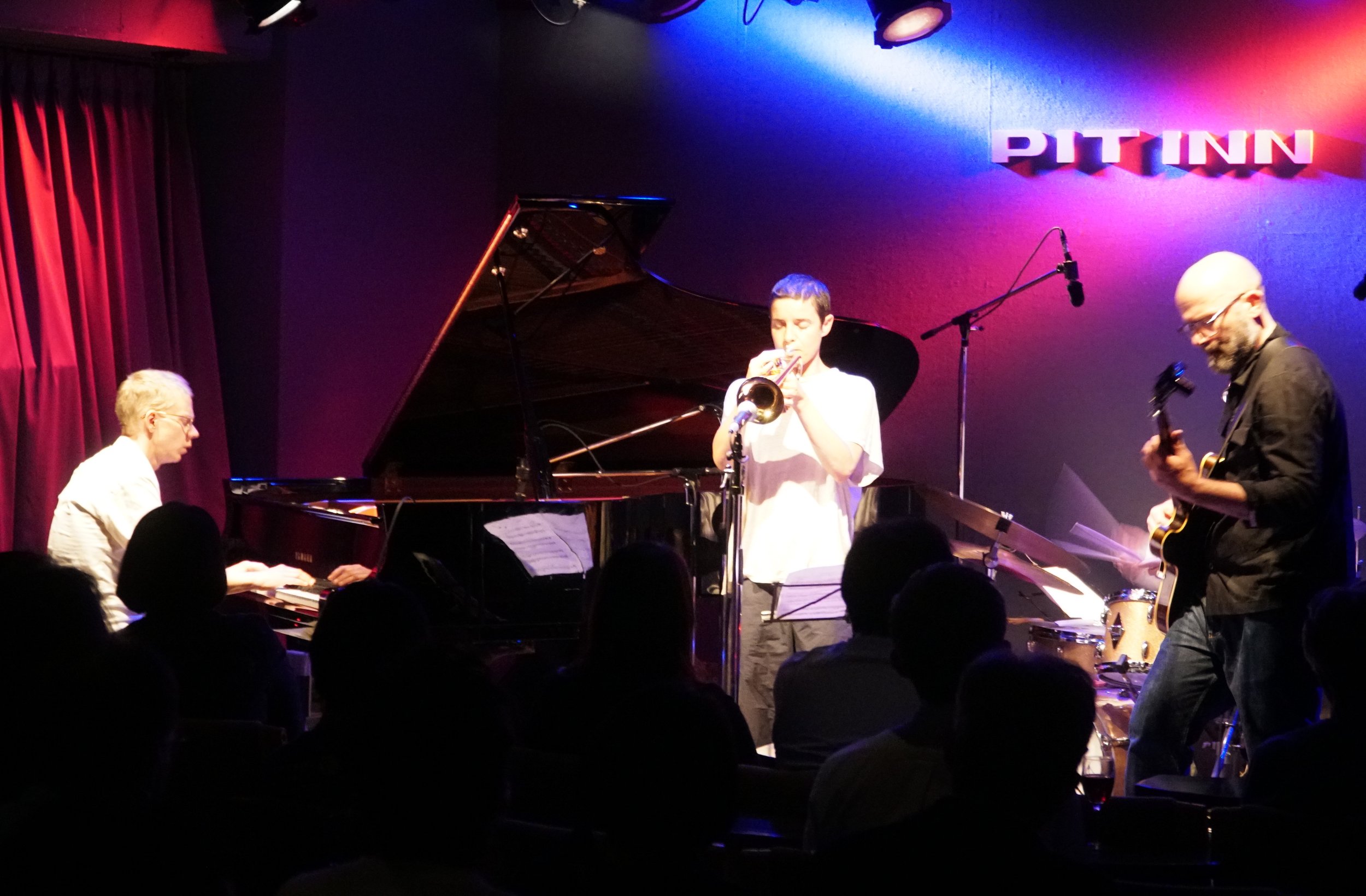Mark Solborg’s Tungemål Feat. Santos Silva, Toldam & Yoshigaki at Shinjuku Pit Inn
Mark Solborg’s Tungemål
Feat. Santos Silva, Toldam & Yoshigaki
Shinjuku Pit Inn May 31, 2023
Mark Solborg – guitar
Simon Toldam – piano
Suzan a Santos Silva – trumpet
Yasuhiro Yoshigaki 芳垣安洋 – drums
Solborg’s Danish brand of minimalist jazz matched up with Japanese drummer Yoshigaki just right. On their short tour of Japan, they brought the very best of North European music and added one of Japan’s very best drummers. The two sets were intriguing and richly satisfying.
The quartet proved how true the saying “less is more” can be. Working through a fluid current of surprising music, they explored the beauty and energy of minimalist approaches, while creating something so much more.
It was not even clear when the set began; the beginnings of the sets were so delicate. It felt a bit like the sounds were being gathered from some ethereal musical space. The brush of strings, the light plop of a drumstick, the sweep of piano strings, a breath of air in the trumpet announced the start. From there, the musicians played with a sense of space around them, as if in separate rooms of a recording studio, each musician in their own space, but still listening intently to the others, ready to give them room to explore further.
That sense of openness ensured that nothing was hurried in the music. There was no tempo to saddle their energy, and no expected end to drive at. It was far from aimless, though, but rather a way of exploring all possible directions, as if floating in a gently swelling musical ocean, with the horizon all around. That unhurried feeling gave listeners time to more fully consider the sounds, as if each note, each tone, had been specially curated.
Everyone kept the stream of sounds interesting and fluid by using their instruments in new ways—quavering softness on electric guitar, reversing airflow through the trumpet, dragging the drumstick across the drumhead, and plucking deep inside the piano. The instruments sounded fresh and new by pushing the limits of the instruments, or maybe just by exchanging approaches to each. The grand piano felt electric, the guitar breathy, the trumpet percussive, and the drums a set of surfaces. Playing without constraint, unique musical textures kept forming and vanishing.
Also intriguing was how the musicians stepped away as often as they stepped forward. This understated approach was less a way of silencing themselves than a way of establishing enough emptiness for the music to fully resonate. In that sense, the music felt symphonic in moving from section to section. And though it was only four musicians, the soundscape felt as large as an orchestra.
Some minimalist music puts the burden on the listener to do a lot of the work, to know about the music, to think about it deeply. But what sets Tungemål apart was how effortless and easily the music flowed. Edgy music never felt so likable. Hopefully, the Danish-Japanese connections will continue long into the future.





